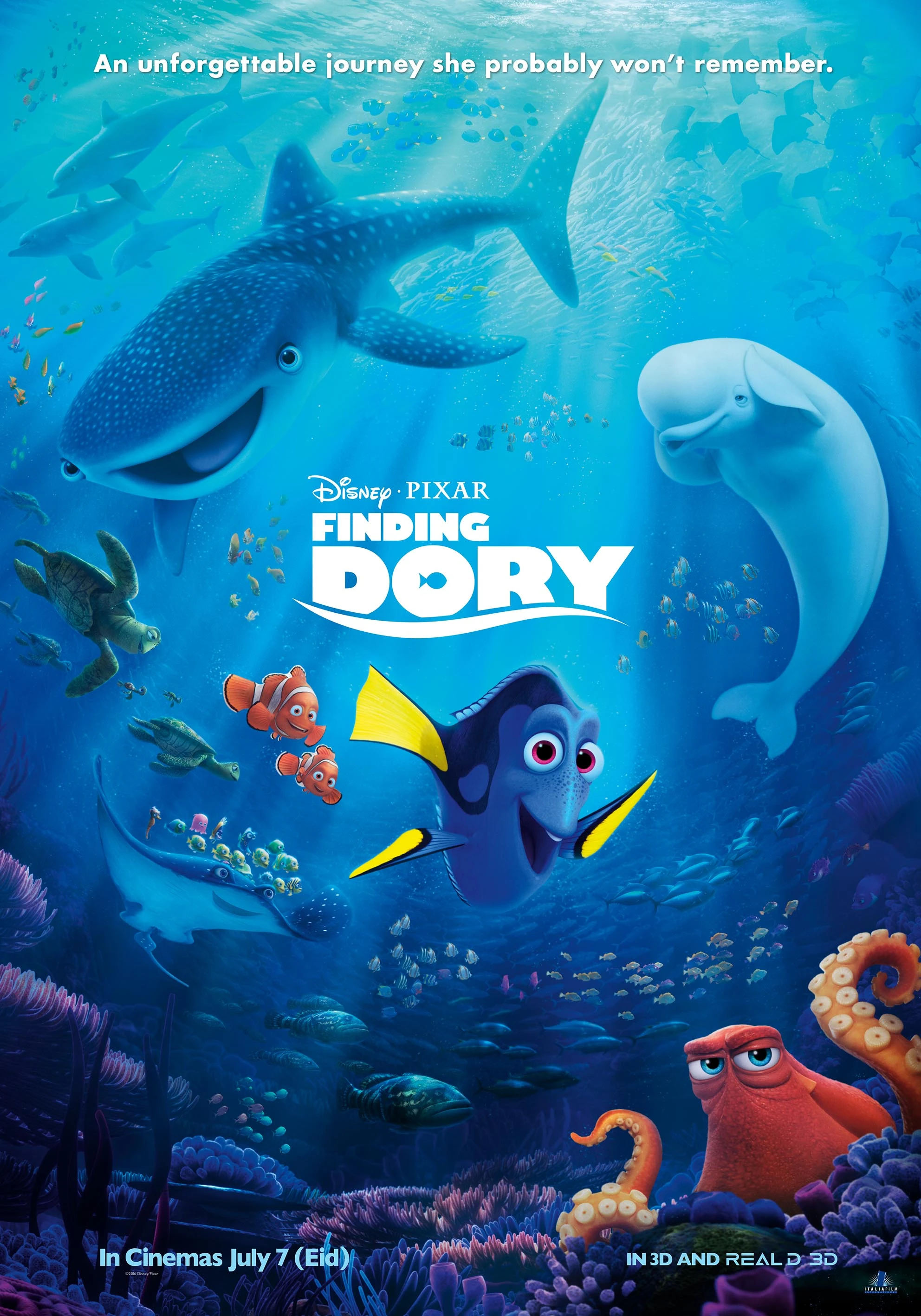 |
| Directed by Andrew Stanton and Angus Maclane Written by Andrew Stanton, Victoria Strouse, and Bob Peterson |
Alo Party Peoples.
Finding Dory is unique in Pixar's catalog in that it has the chance to get really, incredibly bleak towards the end... and then it just doesn't. The studio is already well known for baking heavy emotional gut-punches into material that looks light and gentle on the surface; like a fantasy about toys coming to life that's also about coming to terms with mortality, or a superhero adventure that's also about midlife crises, or a rehash of Herman's Head that's explicitly about how bottling up difficult emotions will only cause them to boil over in the end.
Finding Nemo followed that template in that it's a movie about talking fish, but it's also at least partially about living with a disability, i.e. Nemo's little fin and Marlin's overprotective nature in regards to it being the thing that kicks off the plot and what lends the story most of it's emotional weight. Finding Dory makes it more explicit by revealing that the title character's forgetfulness is actually the result of chronic short-term memory loss, a childhood disability of her very own. The film opens with her parents teaching her coping mechanisms so she can lead a fuller life when she gets separated from them, and wanders the ocean for years, sometimes even forgetting what she's searching for, until the runs into Marlin and Finding Nemo happens. A year later, Dory has an encounter with a stingray triggers a dormant memory, which leads her to drag Marlin and Nemo along on another journey across the ocean to find her parents, which leads them to the Marine Life Institute of California where they get separated again.
"Hey kids/older teenagers that were in grade school when Finding Nemo came out! Remember the funny comic relief sidekick from last time? Well, the forgetfulness you spent the last film laughing at is actually a crippling disability she's been dealing with her entire life!" should come across as self-parody - just writing it out makes it sound like someone's screwed-up fanfiction. But I'll be damned if it doesn't work, because Pixar is that good at this material and because of Ellen DeGeneres' performance as Dory. Making her the main character means she doesn't get to be as funny, but she gets to go deeper and more poignant than Finding Nemo could ever let her be. By the end, it gets damn close to one of the most effecting endings Pixar has ever achieved...
...but then it sort of doesn't. I understand why, if the film ever slowed down enough for the weight of the scenario to really sink in, it'd come across as existentially horrifying instead of just exciting. The characters find themselves literally flung from one life-or-death situation to the next in a mostly dry, human-built space that's far more difficult to navigate than the open ocean. It's the kind of tossing around that usually gets reserved for Woody and company in the Toy Story movies, except that a fish is far less durable than an action figure. Aside from one scene in an interactive tidal pool, it never quite gets to the kind of intensity that Pixar is known for. At the end of the day, it's a kids movie, and you're not supposed to leave deep psychological scars in a kids movie; regardless of how well it would have fit thematically, Woody and company were never going to die at the end of Toy Story 3. Instead it keeps things going along at a good clip, introducing lots of new characters, Ed O'Niell as a curmudgeonly octopus is a real stand-out, and keeping from getting in too deep.
Finding Dory is a great family film, and one I imagine that parents of disabled children will have been waiting for for a long time, but it's not a great Pixar film. All the pieces are there, and if better assembled they could have achieved greatness, but for as long as it took to get a sequel off the ground, Finding Dory simply doesn't clear the bar that Pixar has set for itself.
Have a nice day,
Greg.B
FINAL RATING: 3/5

No comments:
Post a Comment